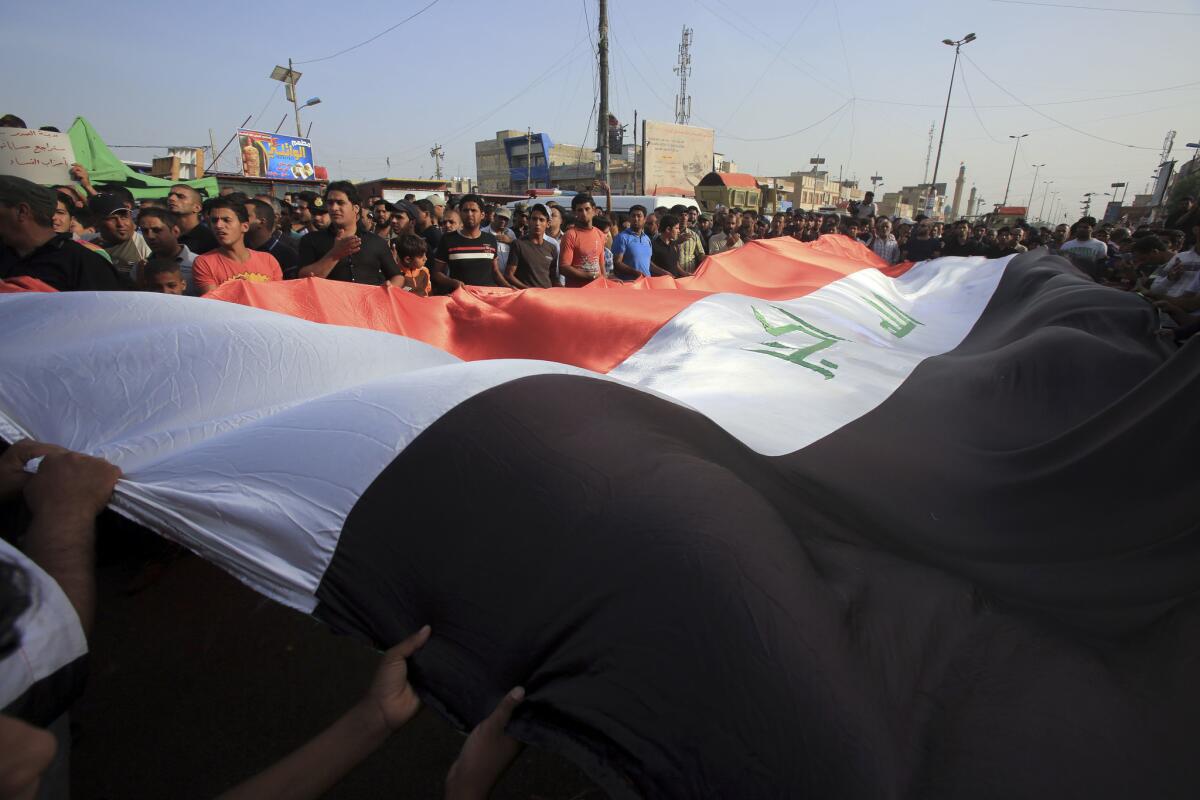13 killed as gunmen and suicide bombers hit Iraqi cafe

A group of gunmen, including two suicide bombers, stormed a coffee shop in a town north of Baghdad early Friday, leaving at least 13 people dead and 15 wounded, Iraqi officials said.
No group immediately claimed responsibility for the assault in Balad, 50 miles north of the Iraqi capital. The attack came on the heels of a two-day wave of bombings in Baghdad that killed nearly 100 people — attacks that have been claimed by the Islamic State group. The deadliest struck the sprawling Shiite neighborhood of Sadr City in northeast Baghdad on Wednesday, killing 63 people.
The Balad attack started with three gunmen, armed with machine guns, who opened fire into the crowd in the cafe shortly after midnight Thursday, officials said. Once police arrived at the scene, two of the attackers detonated their suicide vests, they said, speaking on condition of anonymity because they were not authorized to talk to the media.
The Islamic State bombings this week exposed lingering gaps in Baghdad’s defenses, which are manned by an array of security agencies and militias that don’t always cooperate. They also point to the resilience of Islamic State, which has increasingly resorted to bombings in civilian areas far from the front lines as it has lost some territory to Iraqi forces backed by U.S.-led airstrikes.
On Thursday evening, hundreds took to the streets in Sadr City to demand government accountability for the security breaches. Protesters carried signs calling for the interior minister to resign while others called for the minister of defense and Prime Minister Haider Abadi to also step down.
Anti-government protests first erupted last summer as temperatures soared and millions were left without electricity. Though Abadi proposed a series of government reforms in August 2015 that he claimed would combat corruption, very little has been implemented. Repeated delays in Iraq’s parliament sparked another wave of protests this year, led by influential Shiite cleric Muqtada Sadr. In late April, the cleric’s supporters stormed Baghdad’s heavily fortified Green Zone and the parliament building.
Since the unprecedented breach of the compound, which is home to many of Baghdad’s ministries and foreign embassies, the country’s government has been largely gridlocked as many lawmakers are boycotting parliament.
Iraqi officials and analysts warn that the deepening political crisis may be distracting Iraq’s security forces from the fight against Islamic State. The Iraqi government claims Islamic State occupies only 14% of the country’s territory after a string of battlefield losses, but the extremist group still controls key border areas between Iraq and Syria as well as Iraq’s second-largest city, Mosul.
ALSO
Federal judge rules Obamacare is being funded unconstitutionally
House Speaker Paul Ryan faces defining career question: Support Donald Trump?
London’s first Muslim mayor calls Trump ‘ignorant’ and supports Clinton
UPDATES:
2:07 a.m.: This article has been updated throughout with additional details and background.
This article was originally published at 12:56 a.m.
More to Read
Start your day right
Sign up for Essential California for news, features and recommendations from the L.A. Times and beyond in your inbox six days a week.
You may occasionally receive promotional content from the Los Angeles Times.






